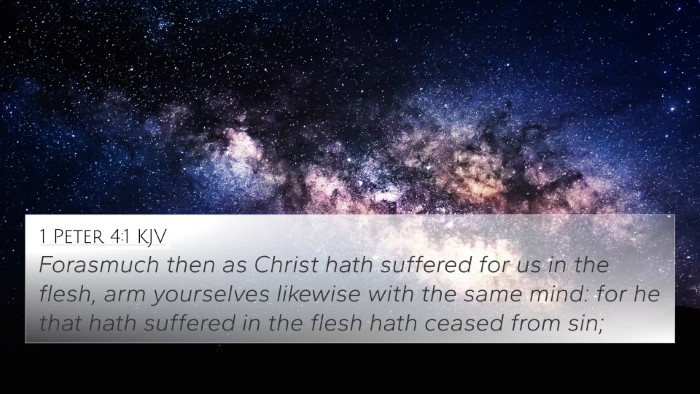Understanding Matthew 16:24
Bible Verse: Matthew 16:24 - "Then Jesus said to His disciples, 'If anyone wishes to come after Me, let him deny himself, and take up his cross and follow Me.'
Summary of Meaning
This verse encapsulates the essence of discipleship and the cost associated with following Jesus. Here, Jesus lays out the fundamental principles that govern a true relationship with Him. The directive to deny oneself, take up one's cross, and follow Him signifies a profound commitment that often requires sacrifice and selflessness.
Key Components of the Verse
- Self-Denial: A call to set aside personal desires and ambitions in favor of God's will. As Matthew Henry explains, this denial is essential for the spiritual journey, emphasizing humility over pride.
- Taking Up the Cross: This symbolizes embracing suffering and challenges in life as part of one's faith journey. Albert Barnes notes that the cross signifies trials, burdens, and the willingness to endure hardship for the sake of following Christ.
- Following Jesus: This is both a physical and spiritual act of obedience and faith. Adam Clarke points out that true discipleship involves adhering to Jesus' teachings and example, moving forward in faith even amidst adversity.
Related Bible Verses
This verse is interconnected with several other passages throughout the Bible, emphasizing the theme of discipleship, sacrifice, and commitment. Below are some key cross references:
- Luke 14:27: "And whoever does not bear his cross and come after Me cannot be My disciple." - Reinforcing the idea of carrying one's cross as a requirement for discipleship.
- Mark 8:34: "When He had called the people to Himself, with His disciples also, He said to them, 'Whoever desires to come after Me, let him deny himself, and take up his cross, and follow Me.'" - A parallel teaching to that found in Matthew.
- Philippians 3:8: "Yet indeed I also count all things loss for the excellence of the knowledge of Christ Jesus my Lord..." - Illustrates the value of losing worldly gain in exchange for a relationship with Christ.
- Romans 12:1: "I beseech you therefore, brethren, by the mercies of God, that you present your bodies a living sacrifice..." - A call to sacrificial living akin to taking up the cross.
- Galatians 2:20: "I have been crucified with Christ; it is no longer I who live, but Christ who lives in me..." - Expressing a transformation that occurs through following Christ.
- John 12:25: "He who loves his life will lose it, and he who hates his life in this world will keep it for eternal life." - Further illustrating the paradox of self-denial for the sake of eternal gain.
- 1 Peter 2:21: "For to this you were called, because Christ also suffered for us, leaving us an example..." - An admonition to follow Christ’s model of suffering and obedience.
Thematic Connections
In exploring the connections between Bible verses, Matthew 16:24 highlights a core theme in Christian teaching: the necessity of self-sacrifice in the pursuit of divine alignment. The act of taking up one's cross serves as a metaphor not only for personal trials but also for participating in the bigger picture of God's redemptive narrative throughout scripture.
Comparative Bible Verse Analysis
The concept of self-denial and cross-bearing can be traced throughout biblical texts. Here are a few methods to study these connections:
- Cross-reference Bible study: Utilizing tools like a Bible concordance to find instances of "cross," "deny," and "follow."
- Bible reference resources: Employing study Bibles that contain footnotes and cross-references to explore thematic links.
- Identifying connections between Old and New Testament: Notably, the theme of sacrificial living emerges strongly in the teachings of both Testaments.
- Bible cross-reference guide: Tracking themes of suffering from the Old Testament prophets to the New Testament apostles.
Cross-Referencing Biblical Texts
Cross-referencing can provide deeper insight into the meaning and application of Matthew 16:24. By exploring the links between various verses, one can grasp the holistic message of Jesus’ call to discipleship. As seen, the echoes of this call resonate through the New Testament, urging believers toward a life marked by sacrifice, love, and faithfulness.
Conclusion
Matthew 16:24 presents a profound invitation to live a life dedicated to Christ, requiring a serious commitment. The insights gained from public domain commentaries enrich our understanding of this verse and its implications for our daily lives as followers of Christ. Through cross-referencing and thematic analysis, believers can find encouragement and direction in navigating their faith journey.

















